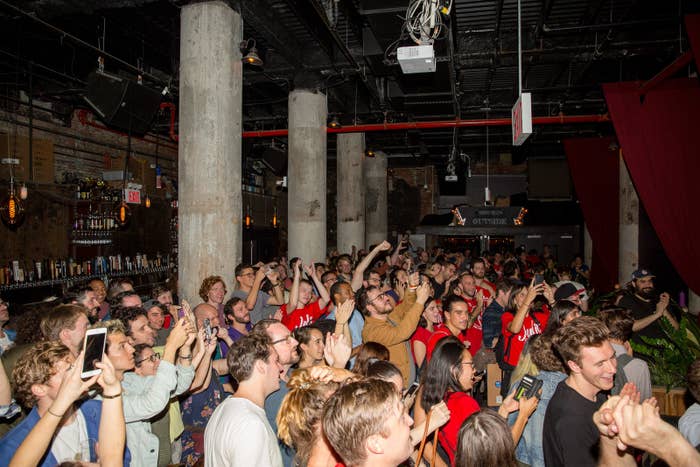
It's an old cliché that all politics is local. It's equally true in this polarized age that most meaningful politics happens in party primaries. That hyperpartisan dynamic is why Republicans keep their disdain for Donald Trump to off-the-record Washington whispers: They are afraid of a primary challenge. And that dynamic is also a big part of what doomed Amazon's New York project.
Alexandria Ocasio-Cortez tweeted Friday, reasonably, that she is getting way too much credit for killing the deal. She has been fairly disciplined about picking her battles, and this wasn't really one of them.
@TweetBenMax I think so. Grassroots community members led + organized the whole effort. Wouldn’t have happened if they weren’t there.
But the same vehicle that brought Ocasio-Cortez to office — the dynamics of low-turnout, local Democratic primaries — haunts any smart Democratic politician at the moment. And the local activists Ocasio-Cortez celebrated draw their political power from their ability to inspire fear in party primaries.
Indeed, the politics that scuttled Amazon was really set last Sept. 13, in the New York Democratic primary. I spent that evening at Cafe Omar, the club in East Flatbush where the top of the progressive ticket — Cynthia Nixon — gamely absorbed her absolute demolition by Andrew Cuomo. But others at the party were jubilant. The leaders of the Working Families Party — the left flank of the New York Democratic coalition —sat in a VIP area to stage left, watching in a kind of overjoyed shock as their bet on an unlikely young group of State Senate candidates won their races and the balance of state power shifted toward progressive Democratic leaders.
When Nixon finished speaking, I grabbed a Lyft over to the backyard of The Well, a Williamsburg bar where the supporters of Julia Salazar — an avowed socialist — were celebrating her victory over a machine Democrat. Wearing bright red T-shirts, they clustered around iPhones to follow the lyrics of “Solidarity Forever” — who really remembers the middle verses to that one? — and enjoyed the eternal reality that local activists win primaries.
The flipping of the New York State Senate gave another obscure local pol, Westchester’s Andrea Stewart-Cousins, real power. She used it in a procedural move that was central to chasing Amazon away, appointing yet another New York name you might not have heard until this week, Michael Gianaris, to a hitherto obscure public body with the power to block the deal.
Gianaris is, like Ocasio-Cortez, both a classic local pol and a veteran of primary politics. The good-looking son of Greek immigrants, he took over his seat from an old-line senator who had opposed marriage equality. And Gianaris had seen the new primary politics up close: He was the key strategist and recruiter behind the new progressive state Senate majority.
Gianaris is an amiable veteran of local politics, a dealmaker rather than an ideologue by nature. He initially signed a letter inviting Amazon to Queens. But while his progressive credentials are sterling — he carried legislation to eliminate cash bail, tax millionaires for the subways, and expand tenants' rights — he faces another obvious local reality: His district overlaps with Ocasio-Cortez’s along Queens Boulevard, in the heart of the most diverse county in the country.
Ocasio-Cortez didn't have to campaign against the Amazon deal. It died not because of anything she did, but because of the primary that elected her. To be a successful American politician right now is to think obsessively about your primary, about your base, about who will bother to show up. If you represent western Queens right now, that means you're thinking about Democratic socialists. The role of Gianaris and other local pols in standing up to Amazon means they believe their futures depend on their new friends on the left, not their new enemies in the city’s business community.
Smart local politicians are a leading indicator. The Republicans who embraced the tea party are the ones who kept their jobs; they took that lesson into fealty to Donald Trump. Here in the progressive heartland, citywide polling showed broad support for Amazon, and that is of little more significance than the polls showing nuanced views on abortion in conservative states. And the death of this deal means, most of all, that Democratic primary voters are in no mood for corporations, for moderates, or for deals.
CORRECTION
Alexandria Ocasio-Cortez did not withdraw her support for the Julia Salazar campaign. An earlier version of this article said she did.
